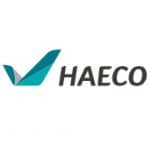China’s first 4-seat zero-emission e-aircraft obtains type certification from CAAC
By Global Times
The Civil Aviation Administration of China (CAAC) said that the home-grown four-seat electric aircraft RX4E, developed by Liaoning General Aviation Academy of Shenyang Aerospace University, has been granted a type certificate for airworthiness, the Xinhua News Agency reported on Thursday.
It is China’s first normal-category aircraft powered by electric batteries to receive official type certification from China’s airline regulator, marking a milestone in the nation’s new-energy electric aircraft technology.
The RX4E is China’s first fully electric, normal-category aircraft designed to comply with CCAR-23, China’s civil aviation regulations governing airworthiness for normal category aircraft, which includes small aircraft, Xinhua reported.
The e-aircraft has a wingspan of 13.5 meters, a length of 8.4 meters, and a maximum take-off weight of 1,260 kilograms. It is powered by a lithium battery with a total capacity of 70 kWh and has an electric propulsion system capable of reaching a maximum output of 140 kW.
Meanwhile, the aircraft can achieve a maximum flight time of 1.5 hours and is notable for its zero carbon emissions, low noise, cost-effective operation and high reliability.
This aircraft could be used in pilot training, sightseeing, recreational flying, aerial photography and aviation surveying, Xinhua reported.
Moreover, efforts are underway to develop more variants, including sea-borne, snow and ice-based, hydrogen-powered, and other specialized models, to broaden its applications and boost market competitiveness.
Under relevant Chinese regulations, normal-category aircraft refer to small aircraft with 19 or fewer passenger seats and a maximum certificated take-off weight of no more than 8,618 kilograms.
China’s low-altitude economy is experiencing a rapid growth, driven by an incessantly improving industrial environment and robust supply chains. The low-altitude economy is projected to reach a market size of 670.25 billion yuan ($93.9 billion) in 2024, according to data from CCID Consulting.




